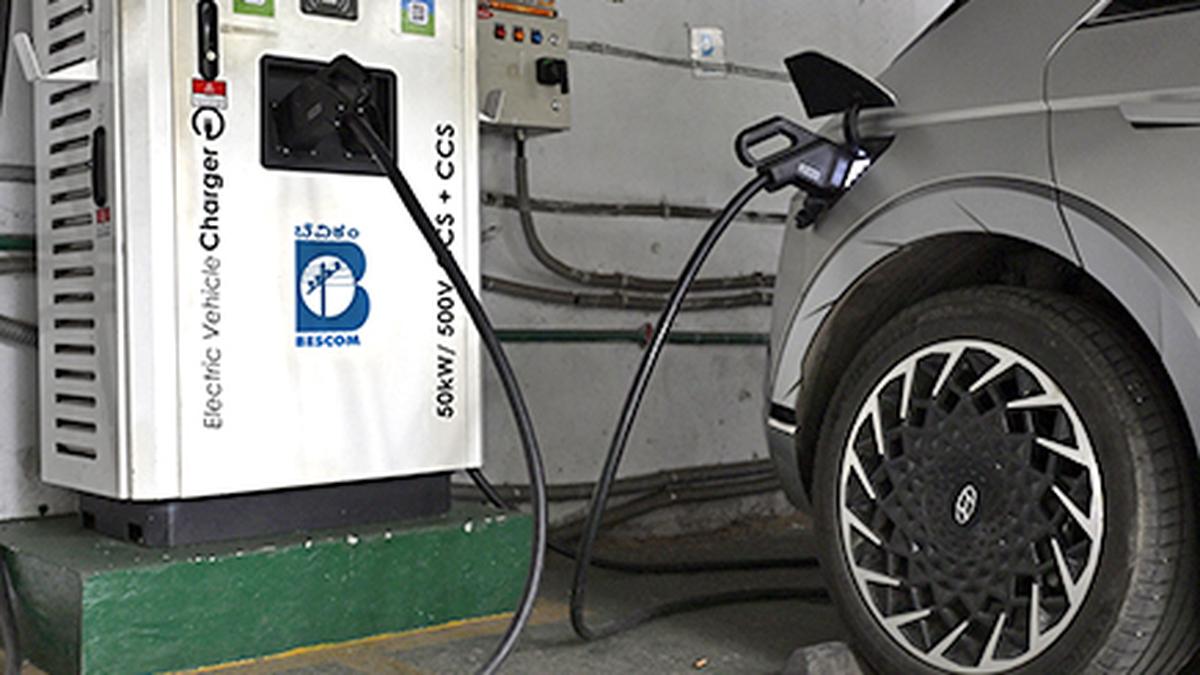
India needs 39 lakh charging stations by 2030: Report
The Hindu
India's EV charging market poised for growth with significant investment, but urgent expansion needed to meet ambitious targets by 2030.
India’s EV charging market is at an inflection point, with more than $450 million (₹30,000 crores approximately) already invested in start-ups operating charging networks and battery-swapping models. Yet, with only one public charger per 135 EVs — far below the global average of one per 6-20 EVs — urgent expansion is needed to meet India’s goal of 3.9 million charging stations by 2030, says a new report by GameChanger Law Advisors and venture capital firm Speciale Invest.
“The Indian government has also set a goal for EVs to constitute 30% of new private vehicle registrations, totalling to 80 million EVs by the year 2030. To accommodate this substantial increase in EV adoption, India will require a total of 3.9 million public and semi-public charging stations, maintaining a ratio of 1 station for every 20 vehicles,” notes the report titled Charging Ahead II.
According to the report, the EV charging infrastructure sector has grown to gain investor confidence over the years. Over the past five years (2020-24), around 50 Indian start-ups have raised close to USD 511 million of capital cumulatively, it points out citing data from Traxcn.
It notes that the sector has witnessed a rise in innovative business models, including pay-per-use public charging and subscription-based services for fleets. Battery-swapping networks gained traction for two- and three-wheelers, further expanding the ecosystem.
Between March 21, 2023, and February 2024, the number of operational public EV charging stations throughout the country has almost doubled from 6,586 to 12,146, as per the data from the Ministry of Power. Maharashtra tops the list with approximately 3,079 stations located across the state. Karnataka has around 1,041 charging stations.
According to the report, government initiatives such as the Faster Adoption and Manufacturing of Hybrid and Electric Vehicles (FAME II) scheme and Production-Linked Incentives (PLI) played a key role in attracting investment. Additionally, various State governments such as Maharashtra, Gujarat, and Karnataka have introduced EV policies offering subsidies and land support for charging stations, particularly in urban areas, it pointed out.
However, the capital-intensive nature of building charging stations, land acquisition hurdles, grid reliability, and low EV penetration in rural areas remained roadblocks, it says.













